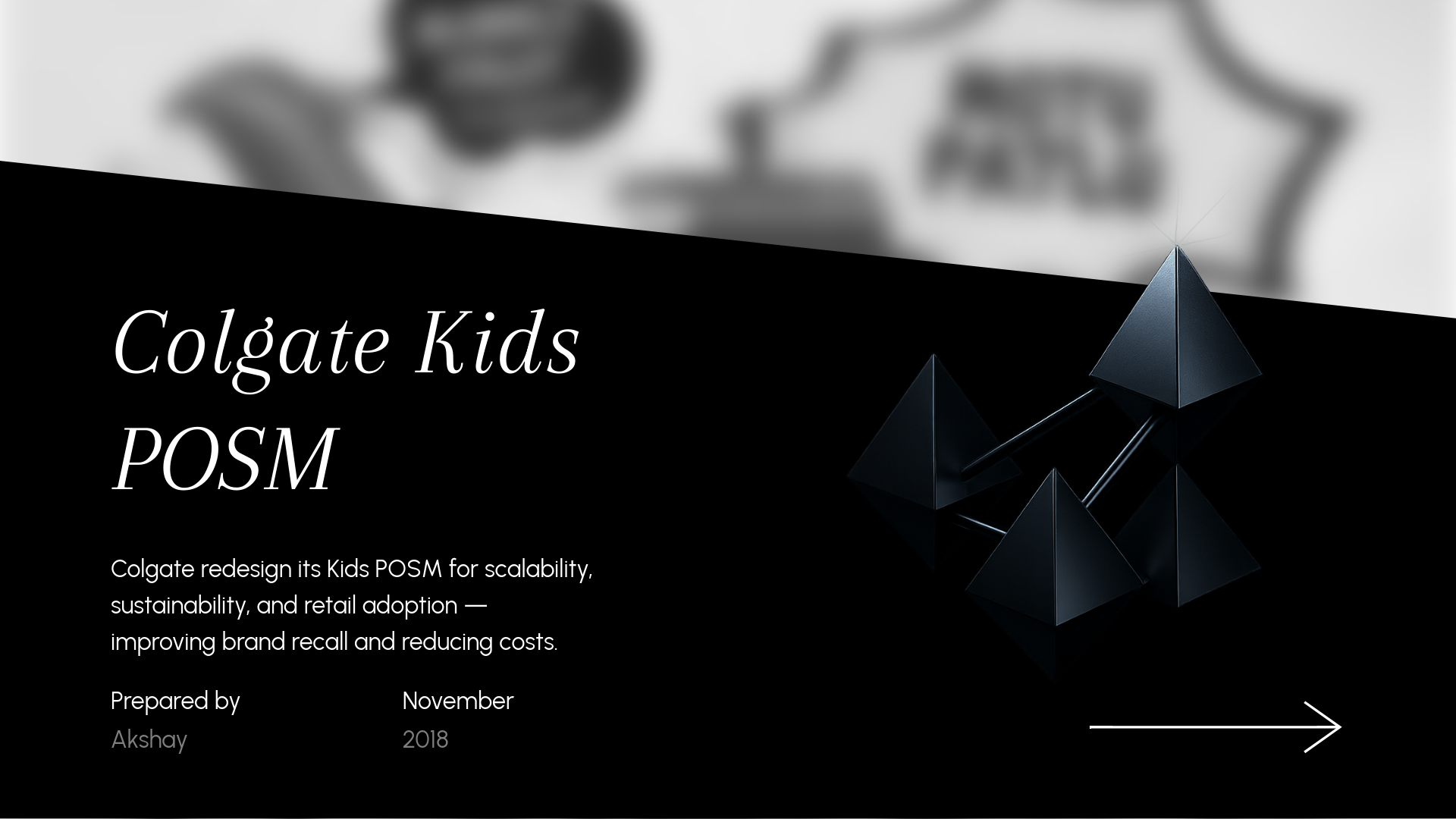 3D Model
3D Model
Colgate Tent Card kids Profile
 🧵 Client Snapshot
🧵 Client Snapshot
Colgate-Palmolive (India) Ltd.
• Category: Kids Toothpaste
• Retail Context: General trade + Modern trade counters across India
A category leader in oral care, Colgate wanted to create engaging Point of Sale Marketing Material (POSM) for their kids range
— one that could stand out in cluttered retail environments while being cost-effective and scalable.
 ⚠️ The Problem
⚠️ The Problem
A great visual idea… that failed on-ground.
• Bulky installs were expensive to produce and ship
• Counter real estate was hard to negotiate with retailers
• Low reuse rate meant POSMs were often trashed after one cycle
• Wastage was high, and ROI per unit kept declining
 🔍 The Turning Point
🔍 The Turning Point
That single sentence reframed the entire design brief.
Through firsthand conversations with kirana store owners and local retailers, we hit the core truth:
“Simple works. We don’t want big displays. We want something easy, small, and reusable — that doesn’t get in the way.”
 🛠 Our Intervention
🛠 Our Intervention
Sterling Arcus re-engineered the concept of POSM with a clarity-first, cost-conscious lens
• Design Logic: Small footprint — held only 4 toothpaste tubes intentionally
• Shipping Efficiency: Flat-packed for mail delivery, cutting transport costs by over 230%
• Assembly UX: No tools, no training — a shopkeeper could set it up in seconds
We designed for behavior, not just aesthetics.
 🌊 The Ripple Effect
🌊 The Ripple Effect
It wasn’t flashy. It was functional. And that’s why it worked.
• 🧾 Lower Costs: Major reduction in logistics and fabrication expenses
• 🌍 Sustainability Win: Zero acrylic or foam = recyclable and waste-free
• 🏆 Internal Recognition: Rated as one of Colgate’s best POS innovations of 2018
 🪞 Reflections
🪞 Reflections
Most brands obsess over visibility. But in retail, viability matters more.
This project was a masterclass in bottom-up design thinking — where user empathy, material logic, and real constraints led to a breakthrough. At Sterling Arcus, it reminded us that sometimes the smartest solution is the simplest one… when it’s built for reality, not just for pitch decks.
“Designing for shopkeepers — not just marketers — is what made the difference.”
